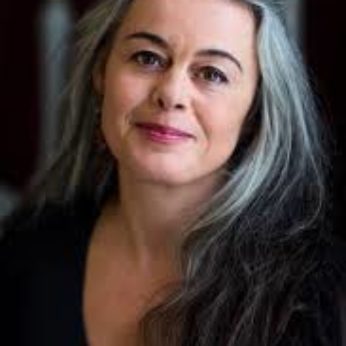Composer: Johann Sebastian Bach (b. 1685 - d. 1750)
Performance date: 07/07/2016
Venue: St. Brendan’s Church
Composition Year: 1724
Duration: 00:58:45
Recording Engineer: Richard McCullough, RTÉ lyric fm
Instrumentation Category:Small Mixed Ensemble
Instrumentation Other: S-solo, vn, ob, vc, hpd
Artists:
Kate Hearne -
[recorder/cello]
Marcus Möhlin -
[harpsichord]
Antoine Torunczyk -
[oboe]
Fredrik From -
[violin]
Maria Keohane -
[soprano]

Pairing
up Bach’s music with Dala Chorales is an idea that has been with me for a long
time. I was brought up surrounded by fiddle and folk music, but from a very
early age a strong passion for art music also cultivated itself. In a child’s
world the incongruity between these two musical arenas, as defined by us grown-ups,
doesn’t exist. The only thing of relevance was the beauty exhibited by these
different worlds, and above all they were one and the same. Their significance
for me today surpasses beauty alone. I have gained respect and humility at
being part of this treasure, a wish to share this with my musical partners, and
above all, to succeed in bringing this music to an audience.
Choosing
a selection of arias from Bach’s cantatas and mirroring them in the Dala Chorales
has been a challenging, but also a very natural process. The messages portrayed
in the texts are of the same world. Virtuoso, multi-faceted music crosses over
to the naked chorales, both in Bach’s world and in that of the Dala Chorales.
My wish
is to interpret Bach with sincerity and heart, waiving the enticement to
present his music as a technical display of virtuosity. At the same time I hope
to present the chorales from Dalarna with the seriousness that they deserve.
Above all, I want to share with you the joy and passion that at one time was
sparked by the presence of an oversized violin in the hands of a child.
A
short history of the folk chorales from Dalarna
Dalarna
is a province in central Sweden which has historically enjoyed a rich folk
culture, not least with regard to its musical heritage. Dalakoraler, or Dala
Chorales are a type of folk chorale which came about under unique
circumstances. With the arrival of the reformation to Sweden in the 16th
century, a new tradition of congregational singing was established in the church
service. It can only be presumed that at the outset congregations sang the
melodies they had heard in Catholic masses as well as melodies drawn from the
folk tradition.
When
the first official psalm book was published in 1695, it was as much influenced
by folk songs as by old Gregorian melodies. Despite the printed music, the
majority of people could not read the notes, and many churches in Dalarna
lacked an organ until well into the 20th century, leaving the chorale melodies
open to interpretation. The practice of improvising over church chorales was
also very common in Swedish homes. Many people lived too far away to be able to
attend church on a regular basis, but they often gathered for moments of
worship at home, where they would sing from the psalm book, embroidering the
melodies they had heard in church. Since it was rare to have a harmony
instrument at home, they often improvised and embellished harmonies, adding
different variations on the basic tune. These folk chorales were been passed down
through generations and developed into a genre of their own. Today the continue
to circulate and thrive in the folk music world.
Copyright © 2025 West Cork Music. All rights reserved.
Designed and developed by Matrix Internet